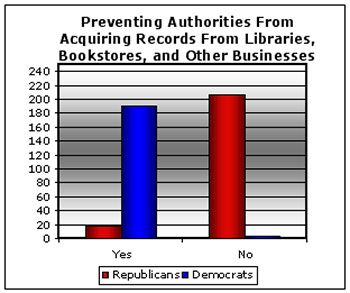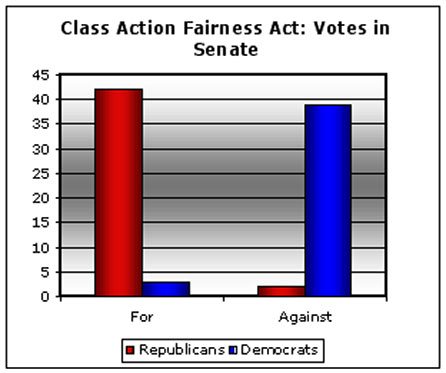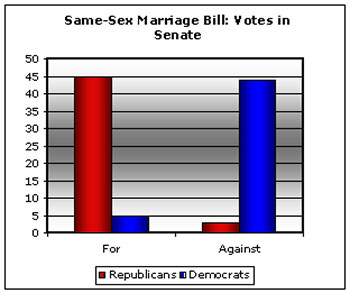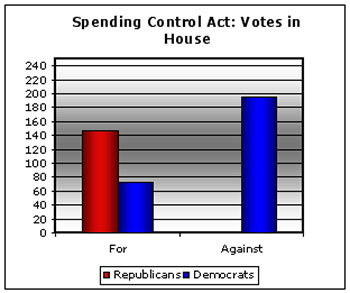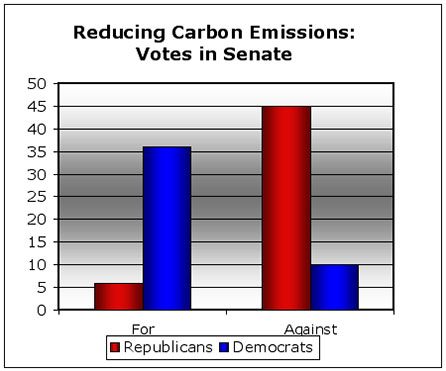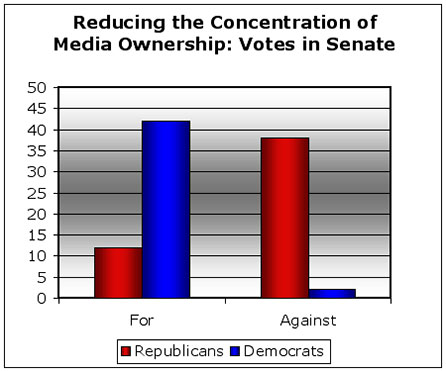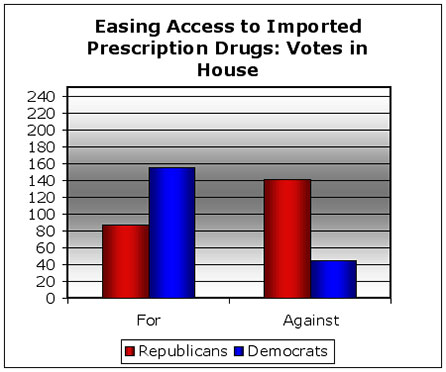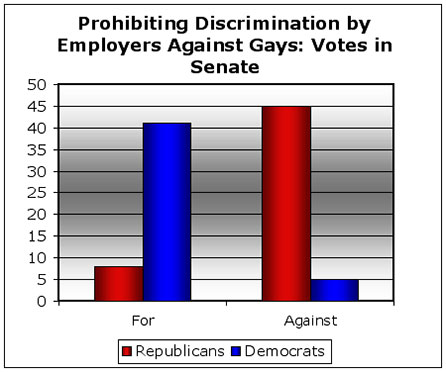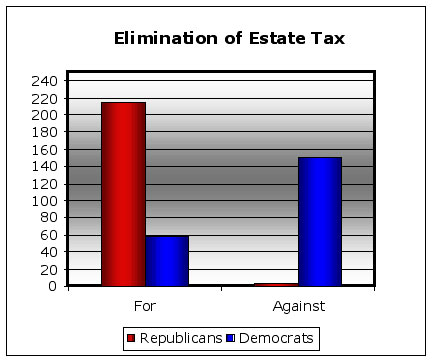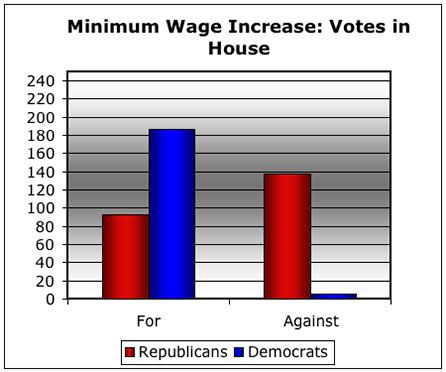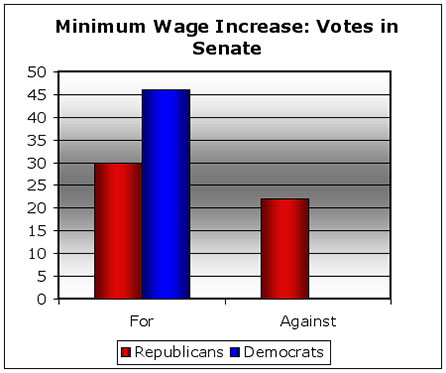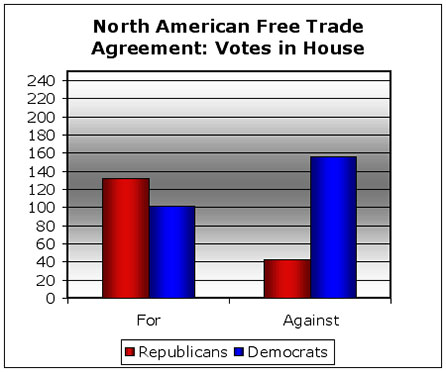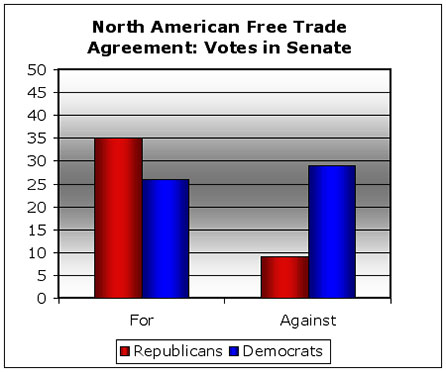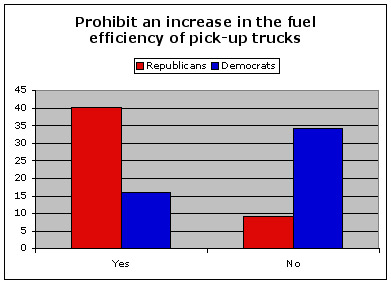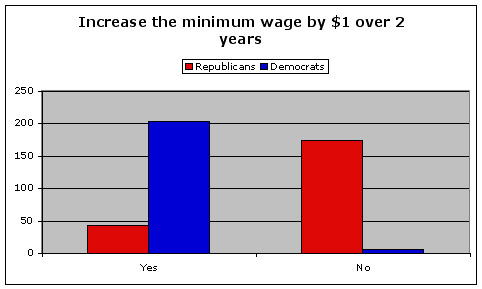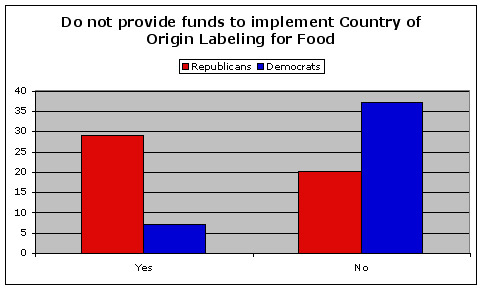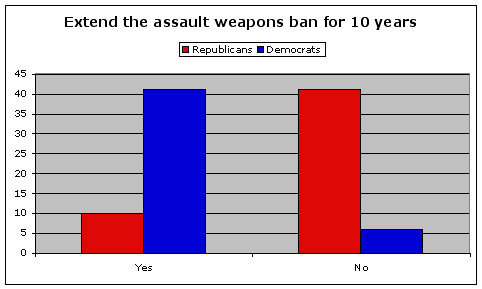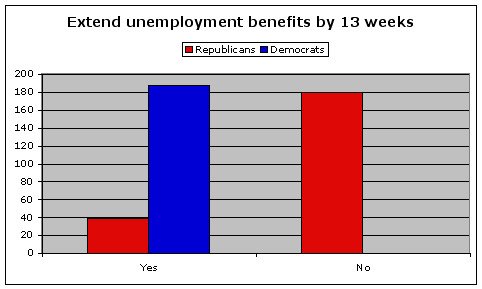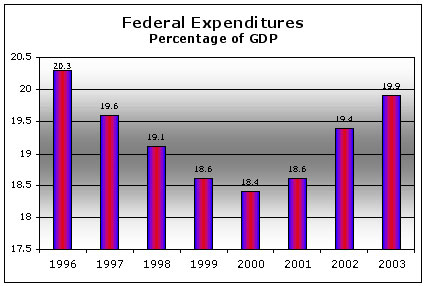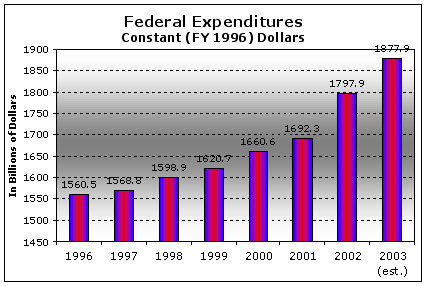Q. I’m thinking of not voting in the next election except maybe for a third-party candidate. After all, there’s not a dime’s worth of difference between the Republican and Democratic Parties. Is there?
Answer:
Your opinion is shared by millions and is reinforced daily by David Letterman, Jay Leno, patronizing political ads and banal 20 second news bites from candidates. Politicians do themselves no favors by chanting empty slogans like a mantra: “lower taxes”, “more jobs”, “a strong defense”, “a safer environment”.
But for those willing to look behind the trite catchphrases of politicians and the shockingly shallow way in which the media reports on politics a considerable difference emerges. This is best demonstrated not by looking at what politicians say, but how they vote.
Surprisingly, that’s not easy to do. T.V. and newspapers rarely break down votes on legislation by party. So if the vote in the Senate, say, is 70-30 in favor of a bill the average person could conclude that the bill had gained widespread bipartisan support when a closer examination might reveal that 100 percent of one party voted in favor and 75 percent of the other party voted against.
Here are just a few of the legislative votes that illuminate the differences between the parties.
See Also: Set of Charts/Graphs of Votes By Party on 10 Key Issues
USA PATRIOT Act AmendmentThe amendment to the USA PATRIOT Act would have restricted authorities from acquiring information from libraries, bookstores, and other businesses. A “yes” vote is a vote to approve the amendment. 93 percent of Democrats voted “yes”. 90 percent of Republicans voted “no”. (July 8, 2004)
|
Class Action Fairness ActThe bill moves class action lawsuits from state courts to federal courts. In the Senate, over 80 percent of Republicans voted for the bill. Over 80 percent of Democrats voted against it. (July 8, 2004)
|
Same-sex Marriage BillThe bill approves a Constitutional Amendment that prohibited same-sex marriages. This was a cloture vote. Almost 90 percent of Repulicans in the Senate voted to approve the bill. Over 90 percent of Democrats voted against the bill. (July 14, 2004)
|
Spending Control ActThe bill imposes spending controls but does not require spending reductions to offset tax reductions nor does it allow tax increases to offset spendind increases. The White House describes the bill in this way: “This proposal recognizes that spending is the problem. Tax increases could not be used to offset mandatory spending under this proposal. And it would not subject tax relier legislation to pay-as-you-go procedures.” In the House of Representatives, almost 65 percent of Republicans voted for the bill and 95 percent of Democrats voted against it.(June 25, 2004)
|
Fighting global warming by reducing carbon emissionsAbout 85 percent of Republicans voted against. About 75 percent of Democrats voted for the proposal.(October 30, 2003)
|
Reducing the concentration of media ownershipOn a resolution disapproving of the Federal Communications Commission decision to allow greater concentrated ownership of newspapers, t.v. and radio stations, 95 percent of the Senate Democrats voted in favor; 80 percent of the Senate Republicans voted against.(September 16, 2003)
|
Easing access to inexpensive imported prescription drugsThe bill died in the Senate. Some 60 percent of Republicans voted against it; 75 percent of Democrats voted for it.(July 23, 2003)
|
Prohibiting discrimination by employers against gaysThis bill died in the Senate. Over 80 percent of the Senate Republicans voted against it; over 90 percent of the Senate Democrats voted for it.(September 10, 1996)
|
Eliminating the Estate TaxIn the House, 98 percent of Republicans voted in favor of a bill eliminating the Estate Tax; nearly 70 percent of Democrats voted against it.(June 18, 2003)
|
Raising the minimum wageIn the House 60 percent of Republicans voted against raising the minimum wage over two years from $3.35 to $4.25 an hour; only 4 percent of Democrats did so. (May 23, 1996) In the Senate 100 percent of Democrats and 60 percent of Republicans voted for the raise. (August 2, 1996)
|
Reducing the ability of local, state and federal governments to regulate imports of goods, services and capital from Mexico and CanadaIn the vote on the North American Free Trade Agreement, 2/3 of the House Republicans voted in favor while 60 percent of the House Democrats voted against.(November 17, 1993) In the Senate Republicans voted 4-1 in favor while a slim majority of Democrats voted against. (November 30, 1993) The NAFTA vote reveals another possible distinction between the two major political parties. Republicans appear to have more party discipline. NAFTA, we should recall, was aggressively supported by Democratic President Bill Clinton but a majority of his own party voted against it.
|
Additional Charts:
|
…One final commentOn one subject there appears to be little difference between the two political parties: the amount of federal spending. Indeed, in the last three years, when Republicans controlled the White House and both Houses of Congress, discretionary spending by the federal government rose at unprecedented rates.
|




